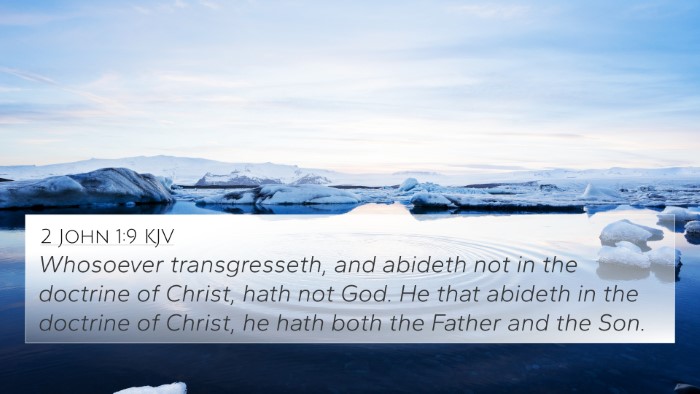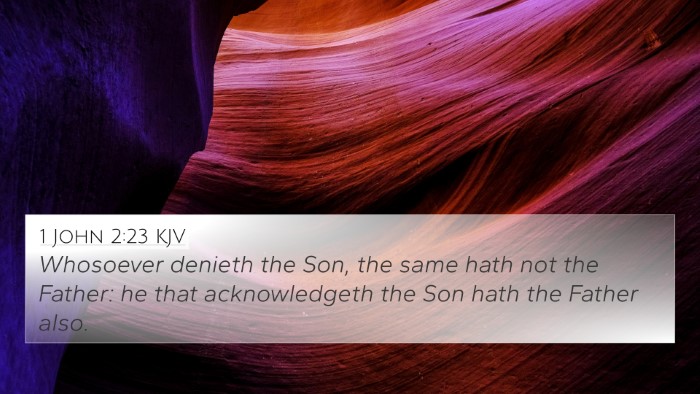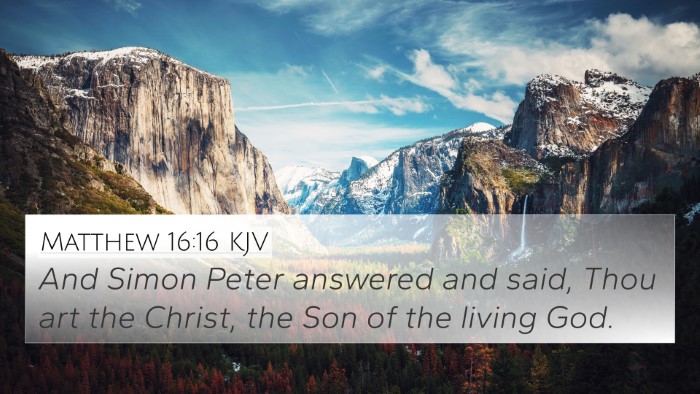Understanding John 20:31
John 20:31 states, "But these are written that you may believe that Jesus is the Christ, the Son of God, and that believing you may have life in His name."
This verse serves as a concluding statement for the Gospel of John, emphasizing its purpose: to inspire belief in Jesus Christ as the Son of God for the gift of eternal life.
Insights from Public Domain Commentaries
Matthew Henry's Commentary
Matthew Henry notes that the Gospel aims to establish faith in Jesus as the Messiah. The written word is portrayed as a divine instrument leading to belief and ultimately salvation. Henry underscores that the testimonies of Jesus' miracles and teachings serve to strengthen the believer's faith.
Albert Barnes' Notes
Albert Barnes highlights that the goal of the author is to bring readers to faith through a clear presentation of Jesus’ life and works. He emphasizes that believing in Jesus is crucial for receiving eternal life, framing the narrative of John as a pathway to faith.
Adam Clarke's Commentary
Adam Clarke elaborates on the significance of belief and its connection to life in Christ. He insists that faith is not merely intellectual assent but a transformative reality that leads to spiritual life. Clarke focuses on the importance of personal relationship with Jesus for true eternal existence.
Key Themes and Cross-References
John 20:31 encapsulates several vital themes central to the New Testament. Here are some related Bible verses that enhance understanding:
- John 3:16: Demonstrates God's love and the provision of eternal life through faith in His Son.
- Romans 10:9: Emphasizes the importance of confession and belief for salvation.
- Acts 16:31: Declares, "Believe in the Lord Jesus, and you will be saved."
- 1 John 5:11-13: Speaks about eternal life through belief in Jesus, affirming assurance in salvation.
- John 1:12: Highlights those who believe in Jesus as gaining the right to become children of God.
- Hebrews 11:6: States that faith is essential in approaching God and recognizing His rewards for those who seek Him.
- John 14:6: Jesus professes to be "the way, the truth, and the life," reiterating the necessity of belief for access to God.
Theological Implications
John 20:31 carries significant theological implications. It invites believers into a deeper understanding of their faith journey:
- Faith as a Response: The verse illustrates faith as a requisite response to the life and works of Jesus.
- Life in His Name: Believing leads to a transformative life characterized by the presence and power of Jesus.
- Purpose of Scripture: Highlights the written word as a means of cultivating faith and recognizing Jesus' identity.
Connections to Other Biblical Texts
Linking Bible scriptures can provide a more profound insight into the themes presented in John 20:31. Here are a few thematic Bible verse connections:
- Faith and Works: James 2:19 discusses faith along with action, revealing that true faith manifests in deeds.
- Regeneration: 2 Corinthians 5:17 depicts the believer as a new creation, which is a result of genuine faith.
- The Witness of the Spirit: Romans 8:16 explains the Spirit's witness in affirming one's identity in Christ.
- The Nature of Christ: Colossians 2:9 asserts the fullness of deity dwells in Christ, another affirmation of His divine identity.
Exegesis of John 20:31
To engage in a comparative Bible verse analysis of John 20:31, one could examine the narrative style of John versus the Synoptic Gospels.
- Gospel of Matthew: Focuses on Jesus' fulfillment of Old Testament prophecy, emphasizing His messianic role.
- Gospel of Mark: Presents Jesus as a servant, highlighting the immediacy of His ministry.
- Gospel of Luke: Offers a more detailed account of Jesus’ compassion and social interactions, representing His universal appeal.
Conclusion
The message of John 20:31 is foundational to Christian faith, urging believers to acknowledge Jesus as the Christ for the promise of eternal life. The interaction with various commentaries enriches understanding and facilitates deeper connections across the Scriptures, demonstrating the cohesiveness of God's redemptive plan throughout the Bible.
Further Study and Reflection
For notes on how to use Bible cross-references effectively, consider exploring tools for Bible cross-referencing such as concordances and online Bible study resources. These can aid in finding relationships between verses and themes, enriching personal study and group discussions.
Call to Action
As you meditate on John 20:31, we encourage a deeper exploration of related verses and themes. Engage in cross-referencing Bible study methods to identify connections between the Old and New Testaments and deepen your understanding of scriptural insights.


























